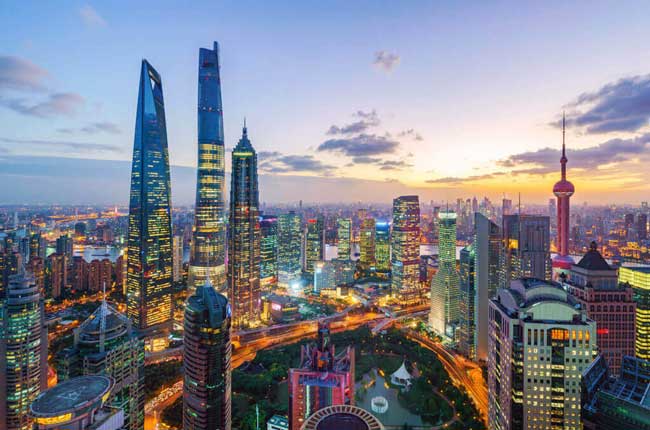Recovery in Asia Pacific’s hotel sector continued to accelerate in 2022 with investment volumes for the first half of the year totaling $6.8 billion. According to JLL data and analysis, investments in the first half of 2022 represent 33.0% growth year-on-year and an 11.9% increase on 2019, demonstrating a return to pre-pandemic levels of capital deployment into the Asia Pacific hotels sector.

In total, there were 75 transactions in the first half of 2022, down 20.2% year-on-year and 33.0% on the first half of 2019 numbers. However, the total number of rooms transacted during the first six months of 2022 was 19,822, representing an increase of 29.9% versus the first half of 2021 and 9.4% during the pre-pandemic period in 2019. The increase in deal activity was influenced by a spike in portfolio transactions as institutional investors sitting on dry powder seek to deploy their capital more efficiently. However, according to JLL, ongoing momentum will likely be challenged by growing macroeconomic and geopolitical headwinds in the second half of 2022.
“The resilience of Asia Pacific’s hospitality sector and reopening of borders have accelerated further in 2022, with pandemic-induced pent-up corporate and leisure demand ensuring that travel demand will soon be on par with pre-Covid levels. As a result, the two-year lull in investment activity has largely subsided, demonstrated by record levels of capital raised for deals across Asia Pacific gateway markets and resort destinations,” says Nihat Ercan, Senior Managing Director, Head of Investment Sales, Asia Pacific, JLL Hotels & Hospitality Group.
Investment activity was spread across various Asia Pacific markets as the opening of borders ensured that many markets transition from reliance on domestic demand towards inbound leisure and corporate business. However, the conflux of current favourable travel market conditions and the longer-term economic outlook is creating a disconnect between buyers’ and sellers’ expectations around pricing.
From an investment volume standpoint, Japan ($1.8 billion), Korea ($1.7 billion), and Greater China including Hong Kong ($1.6 billion), received the most capital in the first half of 2022. Singapore ($899.7 million), Maldives ($205.5 million), and Indonesia ($159.6 million) continued to recover strongly. Activity in Australia ($145.5 million) and Thailand ($37.7 million) was more subdued but will likely be bolstered in the second half due to numerous marque deals closing.
“A more sustainable recovery in travel will intensify the largest challenge faced by many investors of successfully deploying capital into investment grade product across the region. We remain steadfast in our conviction that total Asia Pacific hotel investment volume will cross the $10 billion mark despite the scarcity of assets coupled with macro and geopolitical headwinds that will continue to influence capital activity,” says Mike Batchelor, CEO, Asia Pacific, JLL Hotels & Hospitality Group.
Australia
Transaction volumes in Australia were relatively muted over the first half of 2022 and down 66.0% on first half of 2021 volumes. According to JLL, there are approximately $700 million of deals that have exchanged but not yet settled, which will drive transaction volumes over the remainder of the year. Investors also remain eager to deploy capital into hotel assets in Australia and New Zealand with a ‘flight-to-quality’ strategy or in mid-market properties where active asset management or conversion of use can drive notable returns.
China
Year-on-year hotel transaction volume decreased by 43.8% due to strict lockdown measures in many cities as a result of a resurgence of Covid cases in China, with many hotel transaction activities likely delayed to the fourth quarter of 2022 or the first quarter of 2023. JLL expects the combined impact of China’s “Three Red Lines” and “zero-Covid” policies to result in further price reductions of hotel assets and forecasts China’s hotel transaction volume to total approximately $2 billion in 2022.
Japan
The market has seen a notable recovery in the first half of 2022 with the key Japan metros tracked by JLL up 91% for the year-to-date 2022 versus the same time last year. Investors remain steadfast to acquire hotel assets in Japan due to an expectation of strong domestic and international tourism demand due to the recent devaluation of the Japanese Yen. Against the backdrop of global rate hikes, Japan’s debt financing environment remains attractive to investors and, as such, JLL expects the country’s transaction volumes to remain strong for the remainder of the year.
Singapore
As one of the first countries to lift most travel restrictions in Asia, Singapore has bounced back the quickest with year-to-date transaction volumes close to $900 million crossing pre-pandemic levels. Transactions have been most active in the mid-market space where investors identified opportunities to convert properties into co-living product to boost performance.
Thailand
According to JLL, more hotels are entering the market as sellers are under increasing pressure to sell. While buyers are actively looking, they are opportunistic in their pricing and more conservative when making offers on properties. There are numerous private equity funds and family offices currently active in the Thailand hotel market and JLL is seeing an increase in foreign interest with the lifting of travel restrictions. JLL forecasts transaction volumes to reach close to $300 million for full year 2022.